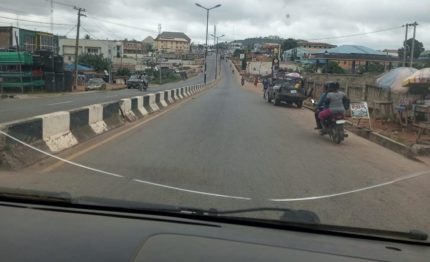On 1 August, the anticipated #EndBadGovernance protests failed to materialize in Ekiti State, as banks and markets opened for business as usual. The state government, led by Governor Biodun Oyebanji, had proactively engaged various interest groups to prevent the demonstrations. Meetings with monarchs, student leaders, market women, artisans, drivers’ unions, and security agencies were pivotal in maintaining peace. Governor Biodun Oyebanji had expressed grave concerns over the potential for violence, and disruption of economic activities recalling the significant destruction during the #EndSARS protests.
In his statewide broadcast on Wednesday, Governor Biodun Oyebanji emphasized the Ekiti state’s commitment to protecting lives and property. He stressed that Ekiti could not afford the economic setbacks similar to those experienced during the #EndSARS protests, which saw extensive damage to both private and public infrastructure. The state’s coordinated effort with local government chairmen ensured that no protests occurred, highlighting the administration’s effective communication and preventive strategies.
Business Activities Resume Uninterrupted in Ekiti State
Despite fears of widespread protests, business activities in Ekiti State remained uninterrupted on 1 August. A visit to Fajuyi Park, the usual protest site in Ado-Ekiti, revealed a heavy presence of armed security forces but no protesters. The streets, typically bustling with activity, were devoid of any demonstrations. Banks along Bank Road were open for business, and shops in the area operated normally. The markets in the state capital, including Bisi Market and Okeisa Market, were busy with traders and buyers, indicating a day of normalcy rather than unrest.
Ekiti State Secretariat and other government offices, however, saw less activity, with many workers staying away as a precaution. This calmness in the business sector contrasted with the heightened security measures and the empty offices, reflecting a cautious but stable environment. The Ekiti State government’s swift actions and community engagements appeared to have reassured citizens, allowing economic activities to continue without disruption.
Yoruba Leaders Commend Youth for Shunning Protests In Ekiti State
In response to the peaceful situation, Yoruba elders, under the Yoruba Leaders of Thought, commended the youth for not participating in the planned protests. The group’s National Leader, Tajudeen Olusi, represented by National Secretary Bayo Aina, praised the government’s efforts in addressing the youths’ grievances, particularly issues of hunger and economic hardship. They highlighted the government’s initiatives to provide food without tariffs and distribute free food as palliatives.
The Yoruba Leaders of Thought expressed their opposition to prolonged strikes, emphasizing that such actions could lead to undesirable outcomes. They urged youths in other states to consider the daily struggles of those dependent on their incomes before engaging in long-term protests. The leaders encouraged the public to continue their lawful activities without fear, promoting stability and economic continuity in Ekiti State.
Public Opinion Divided on Protests and Government Measures
Public opinion in Ekiti State was divided regarding the nationwide protests. While some residents, like Opeyemi Iyunloye, believed that the governor’s address played a significant role in preventing the protests, others were more critical. Iyunloye urged fellow citizens to embrace peace and allow the federal government time to implement lasting solutions to the issues of hunger, insecurity, and economic instability.
Governor Biodun Oyebanji’s appeal for calm seemed to have a considerable impact, as the anticipated protest did not take place. The security measures and the governor’s reassurances contributed to the overall peaceful atmosphere in the state. However, the underlying issues that prompted the call for protests remain a concern for many Nigerians, highlighting the need for continued efforts to address these challenges comprehensively.
Table of Contents
Discover more from OGM News NG
Subscribe to get the latest posts sent to your email.














